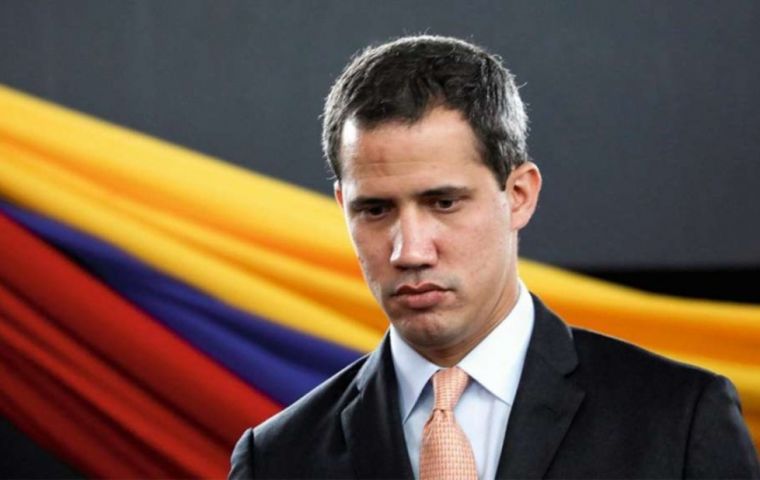MercoPress. South Atlantic News Agency
Venezuela: opposition majority calls for the termination of Juan Guaidó's “interim government”
 The opposition pointed out that the vast international support Guaidó counted on in his proclamation in 2019 dwindled.
The opposition pointed out that the vast international support Guaidó counted on in his proclamation in 2019 dwindled. An opposition majority called this Wednesday for the cessation of functions of the “interim government” of Juan Guaidó in Venezuela by considering that, after four years of his self-proclamation, the mechanism was weakened without achieving the objectives of political change set out. This represents a change for dozens of countries that formaly still recognize the parliamentary leader and host opposition ambassadors in their territory.
”We address the country (...) to restore the validity of the Constitution of the Bolivarian Republic of Venezuela, the cessation of the functions of the interim government scheduled for next January 4,“ says a statement signed by 69 of the 112 opponents who supported Guaidó's self-proclamation in 2019, when the opposition controlled the Parliament.
The ”expected liberation objectives have not been achieved and the country demands new paths that lead us towards democracy,” continues the text of the group, composed of members of the largest opposition parties: Acción Democrática (AD), Primero Justicia (PJ) and Un Nuevo Tiempo (UNT).
The petition comes one day before a session of the Parliament elected in 2015 is to be held, which defends its validity by considering that the legislative elections of 2020, in which Chavism triumphed, were fraudulent.
The session was called last weekend by Guaidó himself, who argues that the “presidency in charge” is “essential” for the “ignorance of the regime” of Nicolás Maduro and that suppressing it “would open the doors to recognize the dictator”.
”I can say with certainty that the constitutional mechanism (...) that we have defended has been useful to disown the dictatorship and deliver aid (...) protect assets, sustain this stage of democratic resistance,” Guaidó said in a video broadcast on social networks in which he asked to wait for the results of the debate.
However, the group of opponents of Maduro’s regime pointed out that the vast international support Guaidó counted on in his proclamation in 2019 dwindled.
The United States remains his main ally, but along the way he lost the backing of countries such as Argentina, Mexico, Peru and, more recently, Colombia, with the arrival of leftist Gustavo Petro to the presidency.
Maduro, on the other hand, always maintained control of power.
Source: AFP




Top Comments
Disclaimer & comment rulesCommenting for this story is now closed.
If you have a Facebook account, become a fan and comment on our Facebook Page!